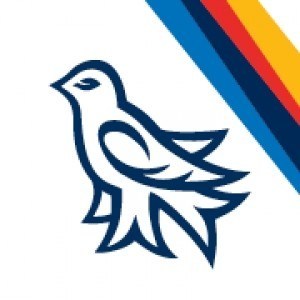Photos of university / #universityofvictoria
The Bachelor of Science in Cellular and Molecular Biology at the University of Victoria offers students a comprehensive education in the fundamental processes that underpin life at the cellular and molecular levels. This program is designed to prepare students for careers in biomedical research, healthcare, biotechnology, and graduate studies. Throughout the program, students will explore the structure and function of cells, the molecular mechanisms that control gene expression, and the intricate interactions within biological systems. The curriculum combines core courses in biology, chemistry, and physics with specialized classes in molecular genetics, biochemistry, cell biology, and biotechnology, providing a well-rounded foundation in the life sciences.
Students will have opportunities for hands-on laboratory experience, engaging in experimental techniques, research projects, and collaborative work that mirrors real-world scientific investigations. The program emphasizes critical thinking, analytical skills, and the application of scientific principles to solve complex biological problems. In addition to classroom and laboratory instruction, students can participate in research initiatives under the guidance of faculty members who are experts in fields such as genetics, molecular biology, and biochemistry. This research experience is invaluable for those planning to pursue graduate studies or careers in research and development.
The curriculum also includes courses on bioinformatics and ethical issues in science, preparing students to navigate the evolving landscape of molecular biology with both technical proficiency and responsible scientific conduct. The program offers a flexible schedule, with options for specialization and elective courses that allow students to tailor their academic experience to their interests and career aspirations.
Graduates of the Cellular and Molecular Biology program at the University of Victoria will be well-equipped with the knowledge, skills, and practical experience necessary for advanced study or employment in various sectors, including healthcare, pharmaceuticals, environmental science, and academia. The program’s combination of rigorous coursework, laboratory training, and research opportunities ensures that students are prepared to contribute meaningfully to scientific discovery and innovation in the rapidly advancing field of molecular biology.
- Biochemistry and Human Health
- Introductory Human Anatomy
- Introduction to Human Systemic Physiology
- Developmental Biology
- Cell Biology
- Molecular Genetics & Genomics
- Animal Physiology
- Molecular Endocrinology
- Molecular Evolution
- Human Molecular Genetics
- DNA Repair, Mutation and Human Health
- Molecular Epidemiology
- Ion Channels and Disease
- Plant Biochemistry and Biochemical Ecology
- The Molecular Basis of Cancer
- Biological and Medicinal Chemistry
Requirements
- Twelve years or more of academic preparation and graduation from a recognized senior secondary school or completion of a recognized diploma program. University entrance examinations offered in the home country may also be required.
- Attestat o srednem obrazovanii (at Grade 11)
- Senior-level math course
- Two senior-level science courses
- IELTS: International English Language Testing System - 6.5, with no individual component less than 6.0
- TOEFL: Test of English as a Foreign Language - 90 on the online test or 575 on the paper-based test, with no section less than 20
(UVic's TOEFL institution code is 0989)
Scholarships
- Entrance scholarships
- Bursaries
- Work study program
The Bachelor of Science in Cellular and Molecular Biology at the University of Victoria offers students an in-depth understanding of the fundamental processes that underpin life at the cellular and molecular levels. The program is designed to equip students with a comprehensive knowledge of biological sciences, focusing on cell structure and function, genetics, biochemistry, and molecular biology techniques. It prepares graduates for careers in research, healthcare, biotechnology, and education, emphasizing critical thinking and experimental skills. The curriculum includes core courses in microbiology, biochemistry, molecular genetics, and cell biology, along with laboratory components that provide hands-on experience in scientific methods and instrumentation. Students have opportunities to engage in research projects, which often involve collaboration with faculty members on cutting-edge topics such as gene editing, molecular diagnostics, and cellular signaling pathways. The program also offers elective courses that allow students to specialize further in areas such as developmental biology, neurobiology, or bioinformatics. Active involvement in seminars, workshops, and conferences enhances learning and professional development. The university's facilities include modern laboratories and research centers, supporting experiential learning and innovation. Students are encouraged to pursue internships, co-op opportunities, and undergraduate research assistant positions to gain practical skills and industry insights. Graduates of the program typically go on to pursue graduate studies, medical training, or careers in research institutions, government agencies, and private industry. The program emphasizes both scientific rigor and ethical considerations in biological research, preparing students to contribute responsibly to advancements in health and life sciences. Throughout their studies, students develop strong analytical, communication, and teamwork skills, essential for success in dynamic scientific environments. The faculty are experienced researchers and educators committed to mentoring students and fostering a collaborative learning atmosphere. Overall, the Cellular and Molecular Biology program at the University of Victoria is tailored to develop well-rounded scientists equipped to address complex biological challenges and to innovate within the rapidly evolving field of molecular life sciences.







